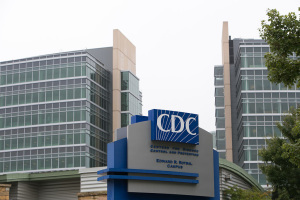Liberal and Evangelical Theologians Agree: Unity Over Severance
Homosexuality not big enough to split the church
WASHINGTON, DC — Two prominent theologians – one liberal, the other evangelical – locked themselves in a debate over homosexuality, orthodoxy and the unity of the Presbyterian Church USA, before an audience of over 600 people, during the Church’s General Conference, Nov. 6-8.
As the debate between the evangelical Richard Mouw, president of Fuller Theological Seminary, and the liberal Barbara Wheeler, president of Auburn Theological Seminary carried on, the two were able to stand together on one common ground: homosexuality should not be an issue big enough to split the nationwide body of believers.
“The most critical reason for us Presbyterian ‘strangers’ to struggle through our disagreements is to show the world that there are alternatives to killing each other over differences,” Wheeler said at the New York Avenue Presbyterian Church.
“As long as we continue to club the other Presbyterians into submission, with constitutional amendments, judicial cases and economic boycotts, we have no word for a world full of murderous divisions — most of them cloaked in religion.”
Wheeler urged people to “skip the split” that has shattered other Reformed communions and Presbyterian denominations of other eras, to make that witness.
“We Presbyterians, who share so much — a confession of faith, a rich theological heritage, the advantage and burdens of wealth and social power — we could covenant to stay together in our Reformed relations, to labor with each other in love, for justice and truth,” she said. “It would be very arduous and painful — much more so than splitting or drifting apart. (But) It would be worth it.
“The world would take note of what the gospel makes possible for those who ... keep on going, strangers locked in covenant, toward the better country of diversity and harmony, liberty and love.”
Mouw also agreed that in spite of differences in beliefs and doctrines, the church must strive to stay together.
“The denomination from which the dissidents depart,” Mouw said, “is typically left without strong voices who are defending their understanding of orthodoxy.”
He said evangelicals should realize that a split could lead to rancor in their own ranks.
“When we evangelical types don’t have more liberal people to argue with, we tend to start arguing with each other,” he said, “and I can testify to the fact that intra-evangelical theological arguments are not always pleasant affairs.
“I would much rather see us continue to focus on the major issues of Reformed thought in an admittedly pluralistic denomination than to deal with the tensions that often arise ... when we have established (our) own ‘pure’ denominations.”
Mouw noted a common ground for evangelicals and liberals to stand together: Christ.
“We do not have to have either our theology or our ethics well-worked-out before we can come together to Calvary,” he said. “All we need to know is that we are lost apart from the sovereign grace that was made available to us through the atoning work of Jesus Christ.”
“We can journey on as friends — no longer strangers to each other — who are eager to talk to each other, and even to argue passionately with each other, about crucial issues of Christology, atonement and discipleship, as servants who are ‘wholeheartedly willing and ready from now on to live for him.’”
“God incorporates us into Christ’s body for a reason: transformation,” Mouw continued.
Wheeler agreed, saying that liberals can look to evangelicals for insight into what that transformation might look like.
“We can stand our ground ... and still let the evangelicals help us balance our word to the church: inclusion, acceptance, but also metanoia, new life,” she said. “Who knows? If evangelicals listen intently to the testimony of faithful GLBT persons, and if our side accepts evangelicals’ prompting to admit our need and desire to be renewed, maybe can strive together for a church as just and generous — and holy — as God’s grace.”
After the debate, Mouw and Wheeler took questions from the floor, including one from Robert Dykstra, a professor at Princeton Theological Seminary, who asked Mouw what would change his mind about the rightness of ordaining sexually active gays and lesbians to church office?
“A biblical argument,” said Mouw, adding that, while there are ambiguities in scripture on the issues of gender, race and slavery, there is no ambiguity in its condemnation of homosexual behavior.
The toughest text, he said, is Romans 1. If someone could demonstrate that the verses there about “unnatural intercourse” and “shameless acts” do not apply to faithful, lifelong commitments between persons of the same gender, he said, his mind “probably” would be changed.




























